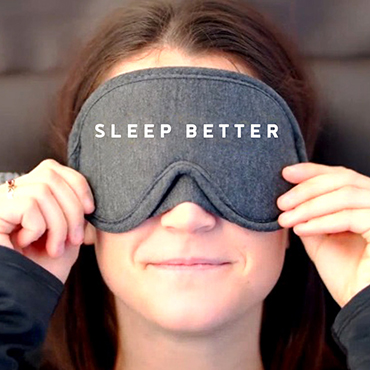Stress Affects Sleep

General stress levels are at an all-time high according to a recent survey by the American Psychological Association. In fact, average stress levels reported were the highest since the survey was first launched in 2007.
These figures can be attributed to COVID-19 and all its implications including the stay-at-home mandates, masks, social distancing, loss of finances, businesses closing down or a reduced workforce, school changes and other aspects of daily life.
Stress and anxiety often lead to insomnia and other sleep problems. Even the lack of a proper night rest can contribute to increased stress. Addressing one of these issues can often lead to improvements for the other as stress and sleep issues share a reciprocal relationship.
Stress can take many forms, but these feelings typically fall into one of three categories: acute stress, episodic acute stress and chronic stress.
A common sleep disorder is insomnia. This persistent difficulty with sleep onset, maintenance, consolidation, or overall quality can occur despite adequate time allocated for sleep on a given night. A person may be diagnosed with chronic insomnia if their symptoms occur at least three times per week for at least three months according to the Sleep Foundation.
While not everyone develops chronic insomnia due to constant stress, those that experience anxiety are at a higher risk of experiencing insomnia symptoms. Changes to sleep schedules can occur due to life events.
INSOMNIA SYMPTOMS INCLUDE:
• Feelings of fatigue and discomfort
• Difficulty paying attention, concentrating, or remembering
• Impaired performance in social, family, professional, or academic settings
• Irritability and mood disturbances
• Hyperactivity, aggression, impulsivity, and other behavioral issues
• Decreased energy and motivation
• Increased risk for errors and accidents
Just as chronic stress can precipitate chronic insomnia, acute stressors can bring about short-term insomnia symptoms. These stressors may include:
• Interpersonal relationship issues
• Work-related problems
• Financial loss
• Grief and sadness
• Diagnosis or initial symptoms of a disease or other medical condition
Acupuncture Decreases Stress for Better Sleep
Stress management is key to a good night’s sleep, and how well you manage stress can depend on your day-to-day lifestyle. In addition to receiving regular acupuncture treatments, following a balanced diet and exercising throughout the week, you can alleviate stress through controlled breathing and other relaxation techniques.
[Back to main news page]



